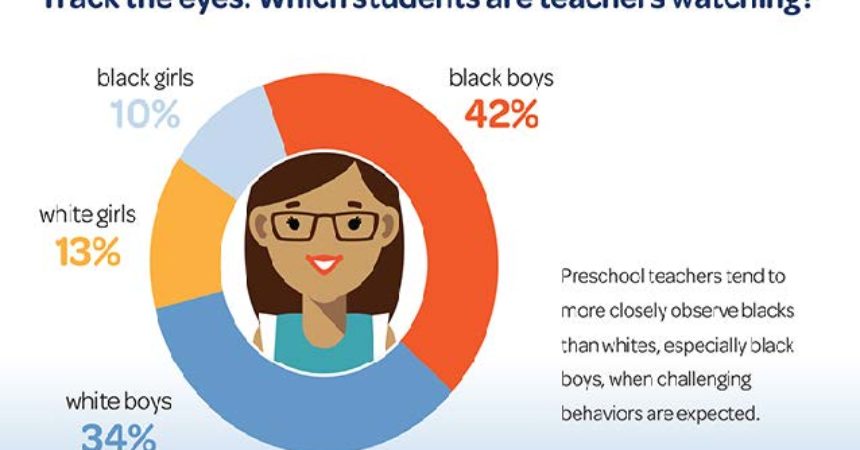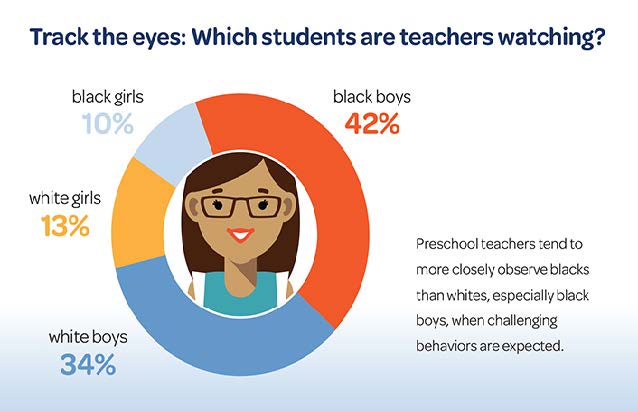
Preschool teachers keep closer eye on Black boys
By Bill Hathaway
Trice Edney News Wire
Sophisticated eye-track-ing technology shows that preschool teachers “show a tendency to more close-ly observe Black students, and especially boys, when challenging behaviors are expected.”
At the same time, Black teachers hold Black stu-dents to a higher standard of behavior than do their White counterparts, report researchers. While the research doesn’t explore why this difference in attitude exists, the researchers spec-ulate that Black educators may be demonstrating “a belief that Black children require harsh assessment and discipline to prepare them for a harsh world.”
White educators, by contrast, may be acting on a stereotype that Black pre-schoolers are more likely to misbehave in the first place, so they judge them against a different, more lenient standard than what they’re applying to White children.
“The tendency to base classroom observation on the gender and race of the child may explain in part why those children are more frequently identified as misbehaving and hence why there is a racial disparity in discipline,” adds Walter S. Gilliam, director of the Edward Zigler Center in Child Development and Social Policy and associate professor of child psychiatry and psychology at the Yale Child Study Center.
The findings suggest that when the preschool teacher and child were of the same race, knowing about family stressors led to increased teacher empathy for the preschooler and decreased how severe the behaviors appeared to the teacher. But, when the teacher and child were of a different race, the same family information seemed to overwhelm the teach-ers and the behaviors were perceived as being more severe.
“These findings suggest that teachers need support in understanding family struggles, as they may be related to child behaviors, especially when the teach-er and child are of different races,” Gilliam says.
Primary funding for the research came from the WK Kellogg Foundation. The article was first posted on the website of Yale University. Bill Hathaway is associate director for Science Engineering and MedicineYale Office of Public Affairs and Communications at Yale.








